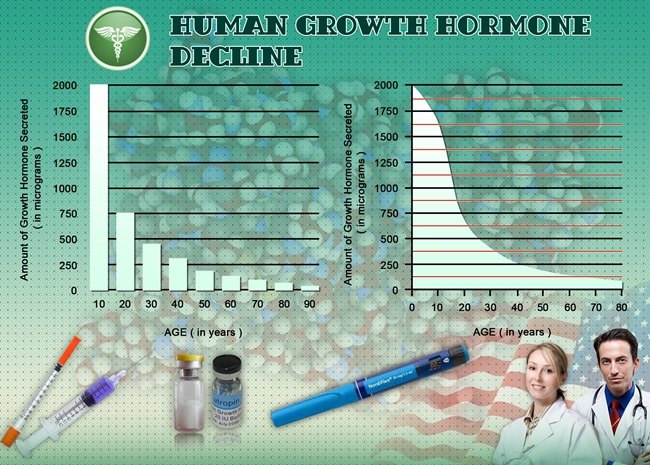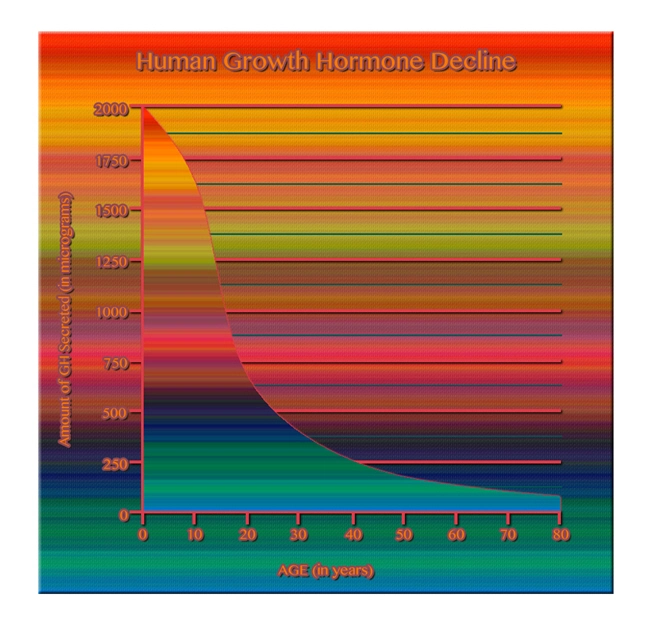
Introduction to Achilles Tendon Injuries
Achilles tendon injuries are a common concern among American male runners, often resulting in significant downtime and potential long-term complications. These injuries can range from mild strains to complete ruptures, each requiring specific interventions for effective recovery. Sports medicine plays a pivotal role in not only treating these injuries but also in preventing them through tailored strategies and interventions.
Understanding the Achilles Tendon
The Achilles tendon, the largest tendon in the body, connects the calf muscles to the heel bone and is crucial for activities like running and jumping. Due to its role in these high-impact activities, it is susceptible to overuse injuries. In American male runners, the prevalence of Achilles tendon injuries is notable, often linked to factors such as increased training volume, improper footwear, and biomechanical issues.
The Role of Sports Medicine in Prevention
Sports medicine specialists focus on a holistic approach to prevent Achilles tendon injuries. This includes thorough assessments of an athlete's biomechanics, training regimens, and overall health. By identifying risk factors early, such as muscle imbalances or inadequate flexibility, sports medicine professionals can implement targeted interventions to mitigate these risks.
Biomechanical Assessments and Customized Training Programs
One of the key preventive measures is conducting biomechanical assessments to evaluate how a runner moves. This can reveal issues such as overpronation or supination, which can contribute to Achilles tendon strain. Based on these assessments, sports medicine specialists can design customized training programs that enhance strength and flexibility, particularly in the calf muscles and surrounding areas. These programs often include specific exercises like eccentric heel drops, which have been shown to strengthen the Achilles tendon and reduce injury risk.
The Importance of Proper Footwear and Orthotics
Another critical aspect of prevention is the use of proper footwear and, when necessary, orthotic devices. Sports medicine experts can guide runners in selecting shoes that provide adequate support and cushioning, reducing the impact on the Achilles tendon. For those with specific biomechanical issues, custom orthotics can further alleviate stress on the tendon, promoting a healthier running form.
Education and Injury Awareness
Education plays a significant role in injury prevention. Sports medicine professionals educate runners on the importance of gradual increases in training intensity, the need for adequate rest and recovery, and the signs of potential Achilles tendon issues. Early recognition of symptoms such as pain or swelling can lead to timely interventions, preventing more severe injuries.
Rehabilitation and Return to Activity
In the event of an Achilles tendon injury, sports medicine is crucial for effective rehabilitation. The goal is not only to heal the injury but also to address any underlying issues that may have contributed to it. Rehabilitation programs are tailored to the individual, often involving physical therapy, gradual reintroduction to running, and ongoing monitoring to prevent re-injury.
Conclusion: The Comprehensive Approach of Sports Medicine
Sports medicine's role in preventing Achilles tendon injuries in American male runners is multifaceted, encompassing prevention, education, and rehabilitation. By leveraging biomechanical assessments, customized training, proper footwear, and comprehensive rehabilitation, sports medicine professionals help runners maintain their performance while minimizing the risk of debilitating injuries. This proactive approach not only enhances the quality of life for runners but also supports their long-term athletic endeavors.
Contact Us Today For A Free Consultation
Dear Patient,
Once you have completing the above contact form, for security purposes and confirmation, please confirm your information by calling us.
Please call now: 1-800-380-5339.
Welcoming You To Our Clinic, Professor Tom Henderson.

- Preventing Ankle Injuries in American Male Volleyball Players: A Comprehensive Guide [Last Updated On: March 14th, 2025] [Originally Added On: March 14th, 2025]
- Rowing and Lower Back Pain: Sports Medicine's Role in Prevention and Treatment [Last Updated On: March 16th, 2025] [Originally Added On: March 16th, 2025]
- Optimizing Recovery for American Male Martial Artists: A Holistic Approach [Last Updated On: March 18th, 2025] [Originally Added On: March 18th, 2025]
- Hamstring Injuries in Sprinters: Diagnosis, Treatment, and Prevention Strategies [Last Updated On: March 18th, 2025] [Originally Added On: March 18th, 2025]
- Surfing Injuries in American Males: Prevention, Treatment, and Performance Enhancement [Last Updated On: March 19th, 2025] [Originally Added On: March 19th, 2025]
- Sports Medicine's Vital Role in Enhancing Triathlete Performance and Health [Last Updated On: March 20th, 2025] [Originally Added On: March 20th, 2025]
- Sports Medicine Revolutionizes Injury Management for American Male Figure Skaters [Last Updated On: March 20th, 2025] [Originally Added On: March 20th, 2025]
- Wrist Injuries in American Male Snowboarders: Epidemiology, Prevention, and Management [Last Updated On: March 20th, 2025] [Originally Added On: March 20th, 2025]
- Sports Medicine's Role in Preventing Overuse Injuries in American Male Climbers [Last Updated On: March 20th, 2025] [Originally Added On: March 20th, 2025]
- Ultimate Frisbee: Knee Health Strategies for American Male Players [Last Updated On: March 21st, 2025] [Originally Added On: March 21st, 2025]
- Sports Medicine Enhances Performance and Health for American Male Polo Players [Last Updated On: March 21st, 2025] [Originally Added On: March 21st, 2025]
- Sports Medicine Enhances Performance and Longevity in American Male Badminton Players [Last Updated On: March 21st, 2025] [Originally Added On: March 21st, 2025]
- Sports Medicine Revolutionizes CrossFit: Enhancing Performance and Health for American Males [Last Updated On: March 22nd, 2025] [Originally Added On: March 22nd, 2025]
- Sports Medicine Benefits for American Male Water Polo Players: Performance, Recovery, Nutrition [Last Updated On: March 22nd, 2025] [Originally Added On: March 22nd, 2025]
- Sports Medicine's Crucial Role in BMX Rider Recovery and Rehabilitation [Last Updated On: March 22nd, 2025] [Originally Added On: March 22nd, 2025]
- Preventing Shoulder Injuries in Lacrosse Goalies: A Sports Medicine Approach [Last Updated On: March 23rd, 2025] [Originally Added On: March 23rd, 2025]
- Sports Medicine's Vital Role in Enhancing Rugby Sevens Performance and Safety [Last Updated On: March 23rd, 2025] [Originally Added On: March 23rd, 2025]
- Preventing Stress Fractures in American Male Runners: Sports Medicine Strategies [Last Updated On: March 23rd, 2025] [Originally Added On: March 23rd, 2025]
- Tendonitis in American Male Tennis Players: Diagnosis, Treatment, and Prevention Strategies [Last Updated On: March 23rd, 2025] [Originally Added On: March 23rd, 2025]
- Rotator Cuff Injuries in American Male Swimmers: Diagnosis, Treatment, and Prevention [Last Updated On: March 24th, 2025] [Originally Added On: March 24th, 2025]
- Optimizing Recovery for Male Wide Receivers: Sports Medicine Strategies [Last Updated On: March 24th, 2025] [Originally Added On: March 24th, 2025]
- Sports Medicine Revolutionizes Training for American Male Handball Athletes [Last Updated On: March 24th, 2025] [Originally Added On: March 24th, 2025]
- Sports Medicine's Role in Enhancing American Male Fencers' Performance and Health [Last Updated On: March 24th, 2025] [Originally Added On: March 24th, 2025]
- Hip Issues in American Male Track Cyclists: Sports Medicine's Role and Innovations [Last Updated On: March 24th, 2025] [Originally Added On: March 24th, 2025]
- Preventing Back Injuries in American Male Rowers: A Holistic Sports Medicine Approach [Last Updated On: March 24th, 2025] [Originally Added On: March 24th, 2025]
- Preventing Shin Splints in American Male Runners: Sports Medicine Strategies [Last Updated On: March 24th, 2025] [Originally Added On: March 24th, 2025]
- Sports Medicine Revolutionizes Injury Management for American Male Swimmers [Last Updated On: March 25th, 2025] [Originally Added On: March 25th, 2025]
- Sports Medicine Benefits for American Male Trampoline Gymnasts: Performance and Health [Last Updated On: March 25th, 2025] [Originally Added On: March 25th, 2025]
- Optimizing Recovery and Performance for American Male Soccer Goalkeepers: A Sports Medicine Approach [Last Updated On: March 25th, 2025] [Originally Added On: March 25th, 2025]
- Sports Medicine Advances Aid Lacrosse Midfielders' Hip Health and Performance [Last Updated On: March 25th, 2025] [Originally Added On: March 25th, 2025]
- Preventing Hamstring Injuries in American Male Soccer Midfielders: Advanced Techniques [Last Updated On: March 25th, 2025] [Originally Added On: March 25th, 2025]
- Sports Medicine's Crucial Role in Recovery for American Male Soccer Defenders [Last Updated On: March 26th, 2025] [Originally Added On: March 26th, 2025]
- Sports Medicine Benefits for American Male Table Tennis Players: Performance and Health [Last Updated On: March 26th, 2025] [Originally Added On: March 26th, 2025]
- Sports Medicine: Enhancing Performance and Health for American Male Track Athletes [Last Updated On: March 26th, 2025] [Originally Added On: March 26th, 2025]
- Sports Medicine's Impact on Recovery Times in American Male Ice Hockey Players [Last Updated On: March 26th, 2025] [Originally Added On: March 26th, 2025]
- Sports Medicine's Impact on Injury Management in American Male Field Hockey [Last Updated On: March 26th, 2025] [Originally Added On: March 26th, 2025]
- Sports Medicine's Role in Enhancing Volleyball Performance and Longevity for American Males [Last Updated On: March 26th, 2025] [Originally Added On: March 26th, 2025]
- Ankle Health Strategies for American Male Beach Volleyball Players [Last Updated On: March 26th, 2025] [Originally Added On: March 26th, 2025]
- Sports Medicine's Vital Role in Enhancing Rugby Forwards' Health and Performance [Last Updated On: March 27th, 2025] [Originally Added On: March 27th, 2025]
- Sports Medicine Revolutionizes Training for American Male Cyclists [Last Updated On: March 27th, 2025] [Originally Added On: March 27th, 2025]
- Cross-Country Skiing: Enhancing Knee Health and Performance in American Males [Last Updated On: March 27th, 2025] [Originally Added On: March 27th, 2025]
- Muscle Health Strategies for American Male Speed Skaters: Enhancing Performance and Longevity [Last Updated On: March 27th, 2025] [Originally Added On: March 27th, 2025]
- Lacrosse Shoulder Injuries: Diagnosis, Treatment, and Prevention Strategies [Last Updated On: March 27th, 2025] [Originally Added On: March 27th, 2025]
- Sports Medicine Advances Extend Careers of American Male Baseball Pitchers [Last Updated On: March 28th, 2025] [Originally Added On: March 28th, 2025]
- Managing Groin Injuries in American Male Hockey Players: A Holistic Approach [Last Updated On: March 28th, 2025] [Originally Added On: March 28th, 2025]
- Sports Medicine Advances Extend Careers of American Male Baseball Outfielders [Last Updated On: March 28th, 2025] [Originally Added On: March 28th, 2025]
- Sports Medicine Strategies to Prevent Achilles Tendon Injuries in American Male Runners [Last Updated On: March 28th, 2025] [Originally Added On: March 28th, 2025]
- Ankle Health Strategies for Basketball Point Guards: Prevention, Care, and Longevity [Last Updated On: March 28th, 2025] [Originally Added On: March 28th, 2025]
- Knee Health Management for Football Running Backs: Prevention, Treatment, Rehabilitation [Last Updated On: March 29th, 2025] [Originally Added On: March 29th, 2025]
- Sports Medicine: Enhancing Performance and Health in Basketball Forwards [Last Updated On: March 30th, 2025] [Originally Added On: March 30th, 2025]
- Sports Medicine Strategies for Recovery in American Male Soccer Forwards [Last Updated On: March 30th, 2025] [Originally Added On: March 30th, 2025]
- Sports Medicine's Impact on American Male Cyclists' Performance and Health [Last Updated On: March 30th, 2025] [Originally Added On: March 30th, 2025]
- Sports Medicine's Comprehensive Role in Enhancing American Male Swimmers' Performance and Recovery [Last Updated On: March 31st, 2025] [Originally Added On: March 31st, 2025]
- Sports Medicine's Role in Enhancing American Male Volleyball Players' Performance and Health [Last Updated On: March 31st, 2025] [Originally Added On: March 31st, 2025]
- Sports Medicine: Enhancing Performance and Health in American Male Track Athletes [Last Updated On: April 2nd, 2025] [Originally Added On: April 2nd, 2025]
- Knee Health Strategies for American Male Cross-Country Skiers [Last Updated On: April 3rd, 2025] [Originally Added On: April 3rd, 2025]
- Sports Medicine: Enhancing Performance and Health for Basketball Forwards [Last Updated On: April 7th, 2025] [Originally Added On: April 7th, 2025]
- Sports Medicine: Enhancing Rugby Forwards' Performance and Health [Last Updated On: April 8th, 2025] [Originally Added On: April 8th, 2025]
- Lacrosse Midfielders' Hip Injuries: Sports Medicine's Role in Recovery and Prevention [Last Updated On: April 8th, 2025] [Originally Added On: April 8th, 2025]
- Managing Groin Injuries in American Male Hockey Players: Diagnosis, Treatment, and Prevention [Last Updated On: April 8th, 2025] [Originally Added On: April 8th, 2025]
- Preventing Hamstring Injuries in American Male Soccer Midfielders: A Sports Medicine Approach [Last Updated On: April 8th, 2025] [Originally Added On: April 8th, 2025]
- Optimizing Recovery for American Male Soccer Forwards: A Holistic Approach [Last Updated On: April 10th, 2025] [Originally Added On: April 10th, 2025]
- Sports Medicine Advances Extend Careers of American Male Baseball Outfielders [Last Updated On: April 11th, 2025] [Originally Added On: April 11th, 2025]
- Sports Medicine's Role in Preventing Achilles Tendon Injuries in American Male Runners [Last Updated On: April 11th, 2025] [Originally Added On: April 11th, 2025]
- Knee Health Strategies for American Football Running Backs: Prevention to Recovery [Last Updated On: April 11th, 2025] [Originally Added On: April 11th, 2025]
- Sports Medicine Advances Enhance Performance, Longevity in American Male Swimmers [Last Updated On: April 13th, 2025] [Originally Added On: April 13th, 2025]
- Sports Medicine Benefits for American Male Track and Field Athletes: Performance and Health [Last Updated On: April 13th, 2025] [Originally Added On: April 13th, 2025]
- Sports Medicine Revolutionizes Training and Health for American Male Cyclists [Last Updated On: April 15th, 2025] [Originally Added On: April 15th, 2025]
- Sports Medicine: Revolutionizing Rugby Forwards' Performance and Health [Last Updated On: April 15th, 2025] [Originally Added On: April 15th, 2025]
- Cross-Country Skiing: Knee Health Risks, Prevention, and Management Strategies [Last Updated On: April 16th, 2025] [Originally Added On: April 16th, 2025]
- Sports Medicine Enhances Performance and Longevity in American Male Volleyball Players [Last Updated On: April 18th, 2025] [Originally Added On: April 18th, 2025]
- Sports Medicine Advances Aid Lacrosse Midfielders' Hip Health and Career Longevity [Last Updated On: April 18th, 2025] [Originally Added On: April 18th, 2025]
- Preventing Hamstring Injuries in American Male Soccer Midfielders: A Comprehensive Guide [Last Updated On: April 18th, 2025] [Originally Added On: April 18th, 2025]
- Groin Injuries in Hockey: Diagnosis, Treatment, and Prevention Strategies [Last Updated On: April 18th, 2025] [Originally Added On: April 18th, 2025]
- Optimal Recovery Strategies for American Male Soccer Forwards: A Comprehensive Guide [Last Updated On: April 18th, 2025] [Originally Added On: April 18th, 2025]
- Knee Health Strategies for American Football Running Backs: Prevention to Rehabilitation [Last Updated On: April 19th, 2025] [Originally Added On: April 19th, 2025]
- Sports Medicine: Enhancing Performance and Recovery for Basketball Forwards [Last Updated On: April 19th, 2025] [Originally Added On: April 19th, 2025]









